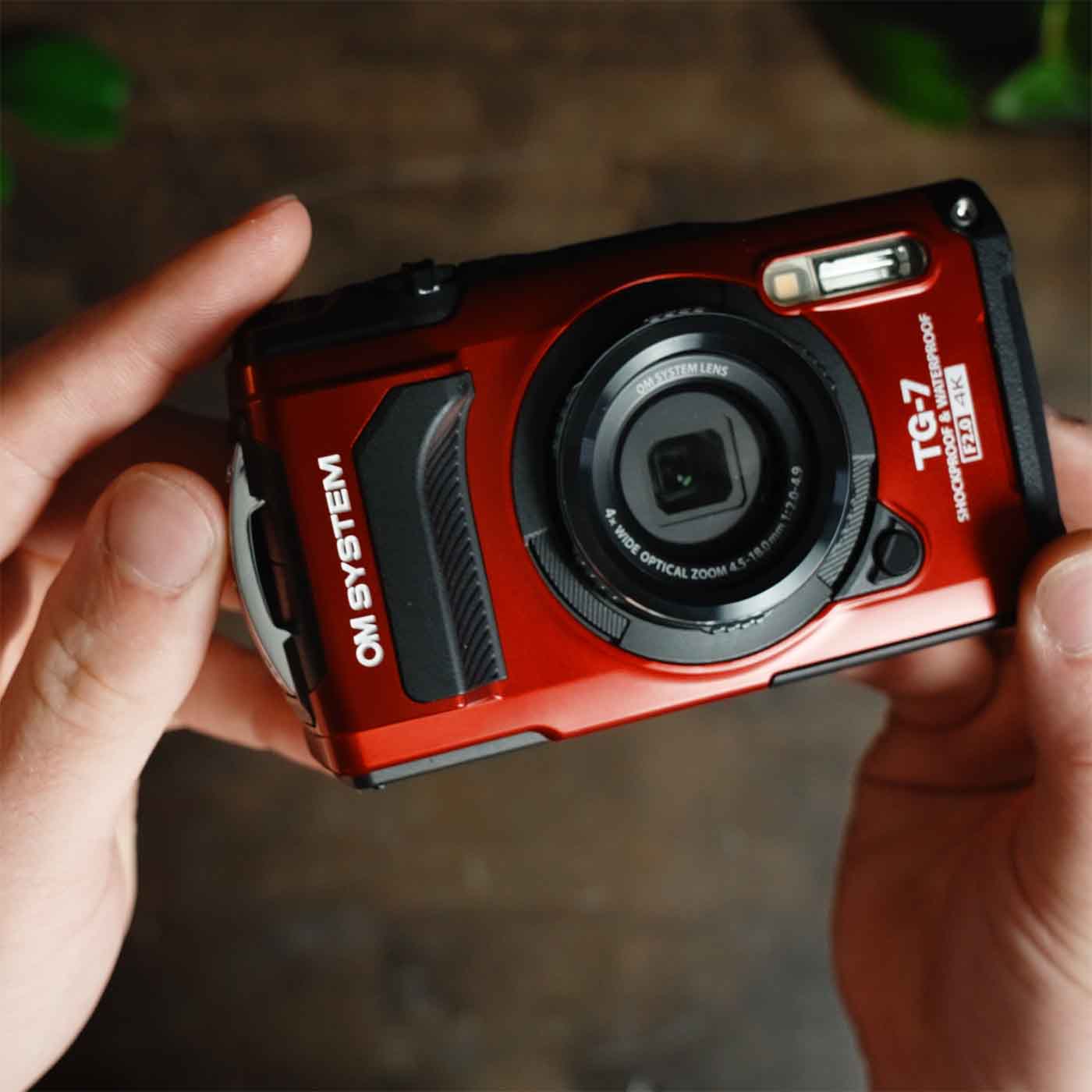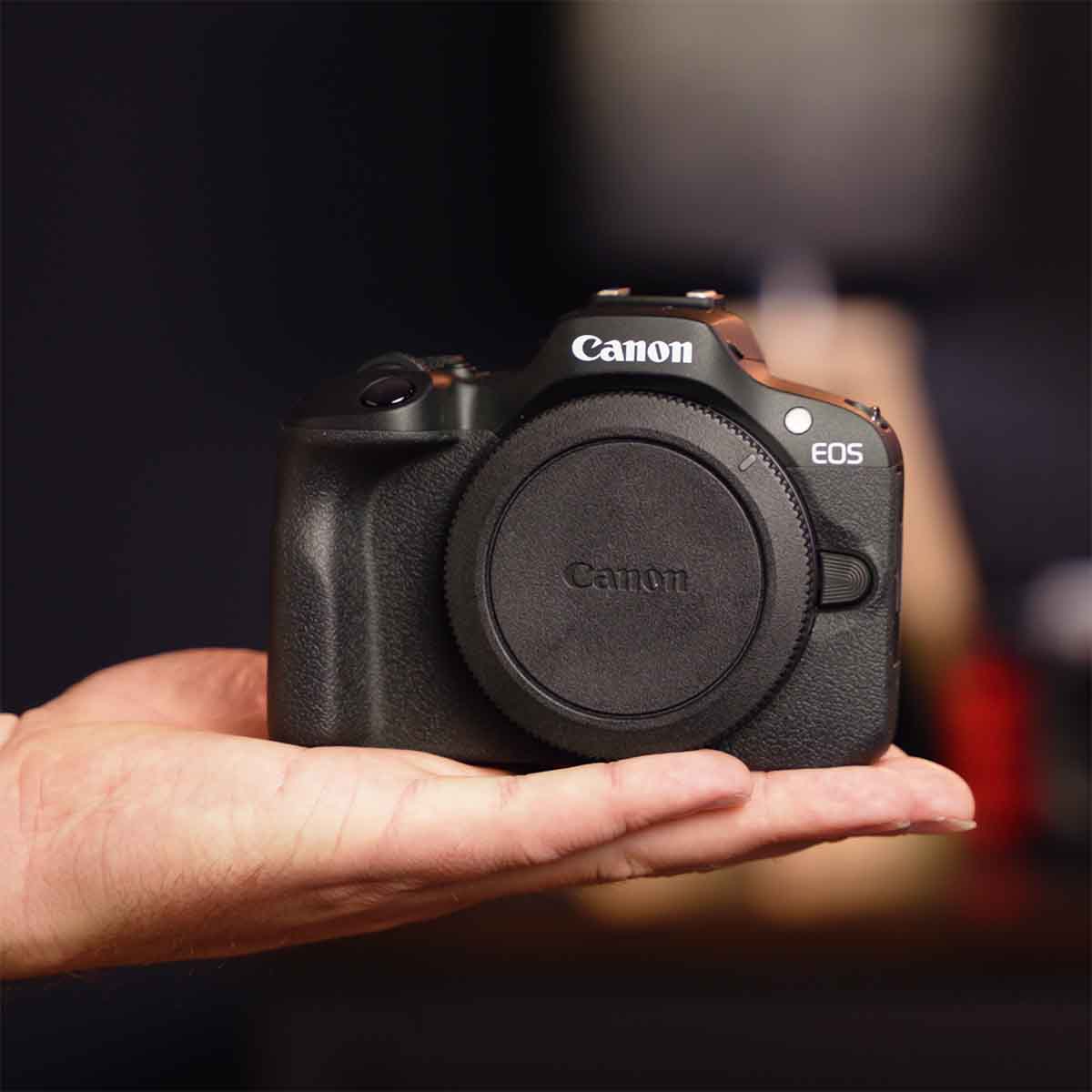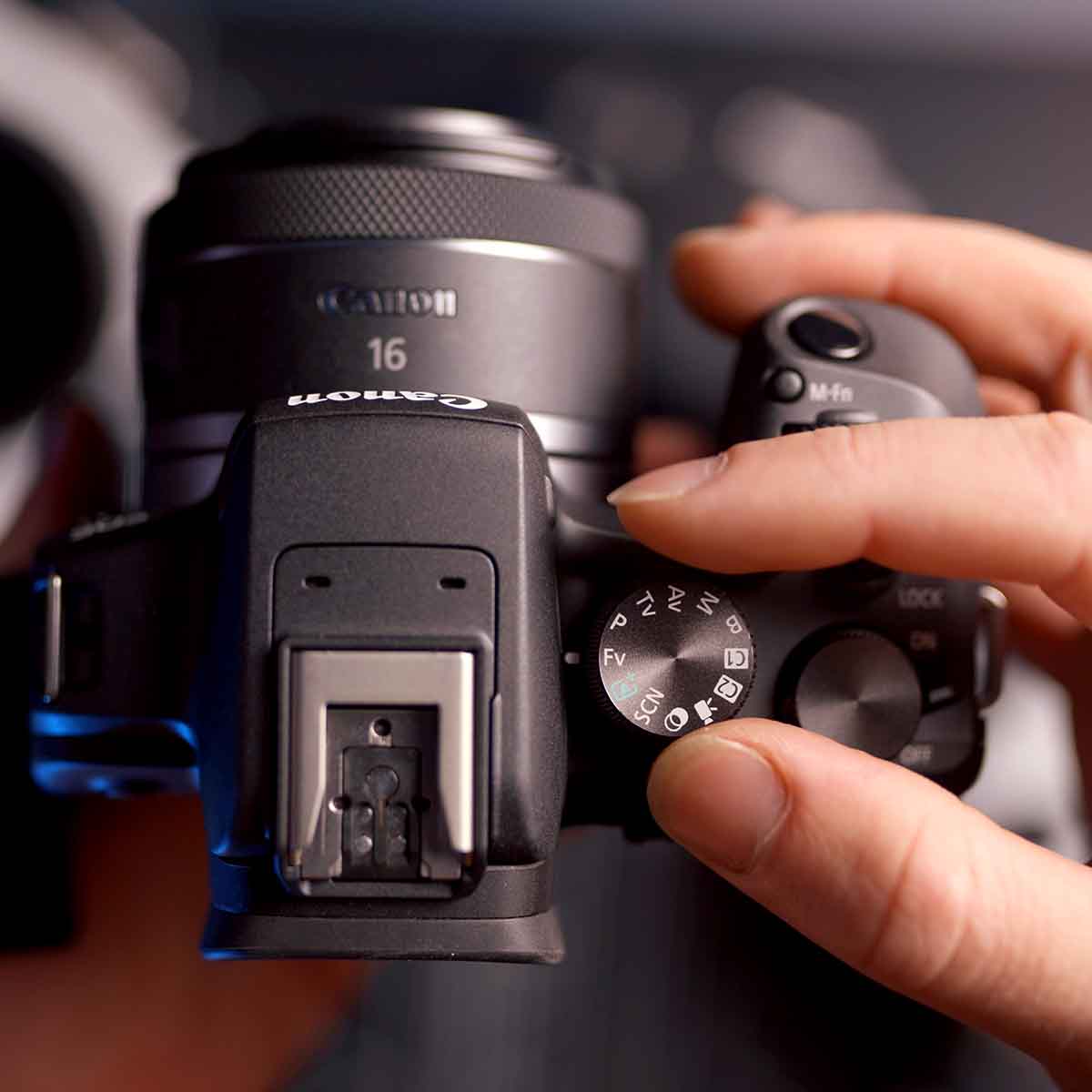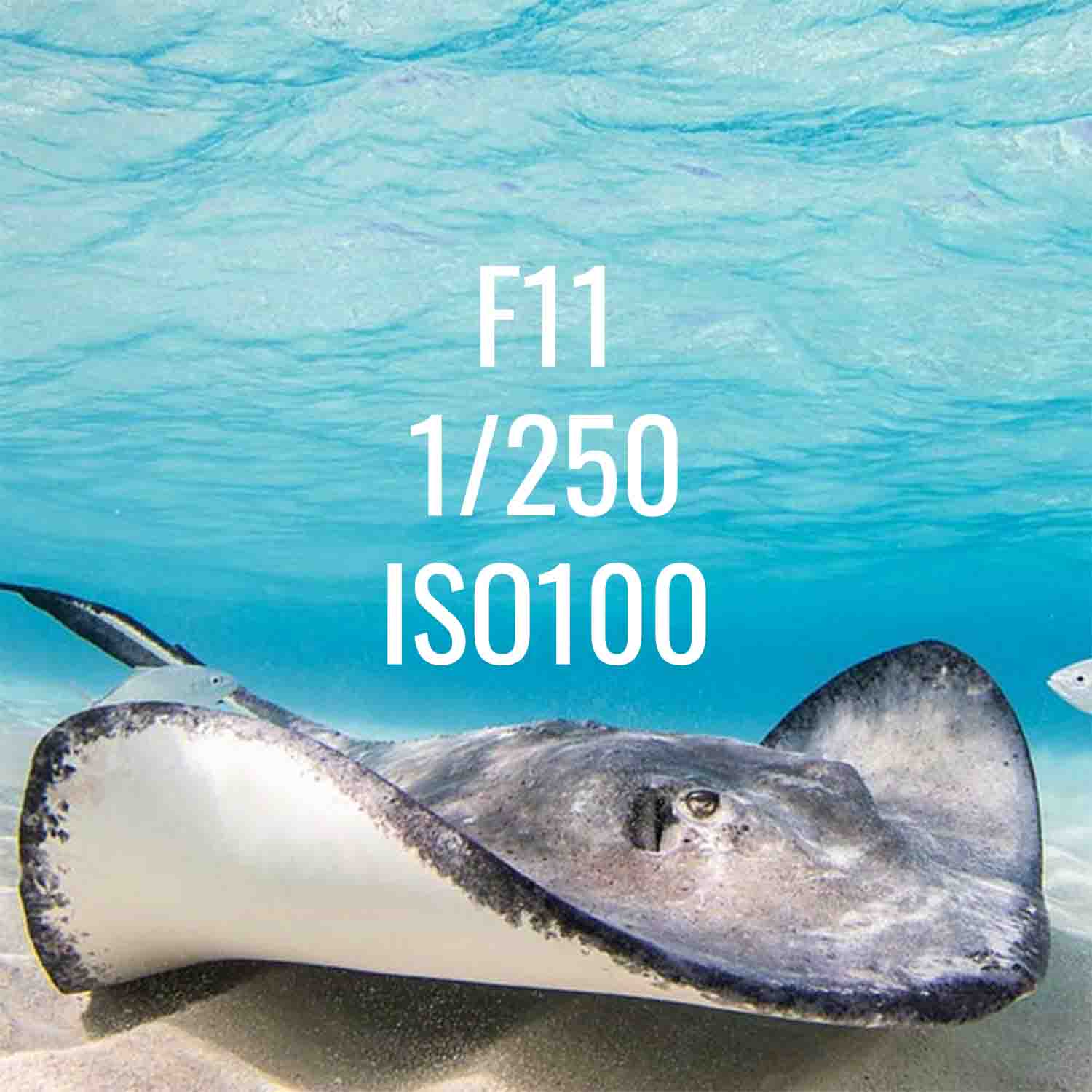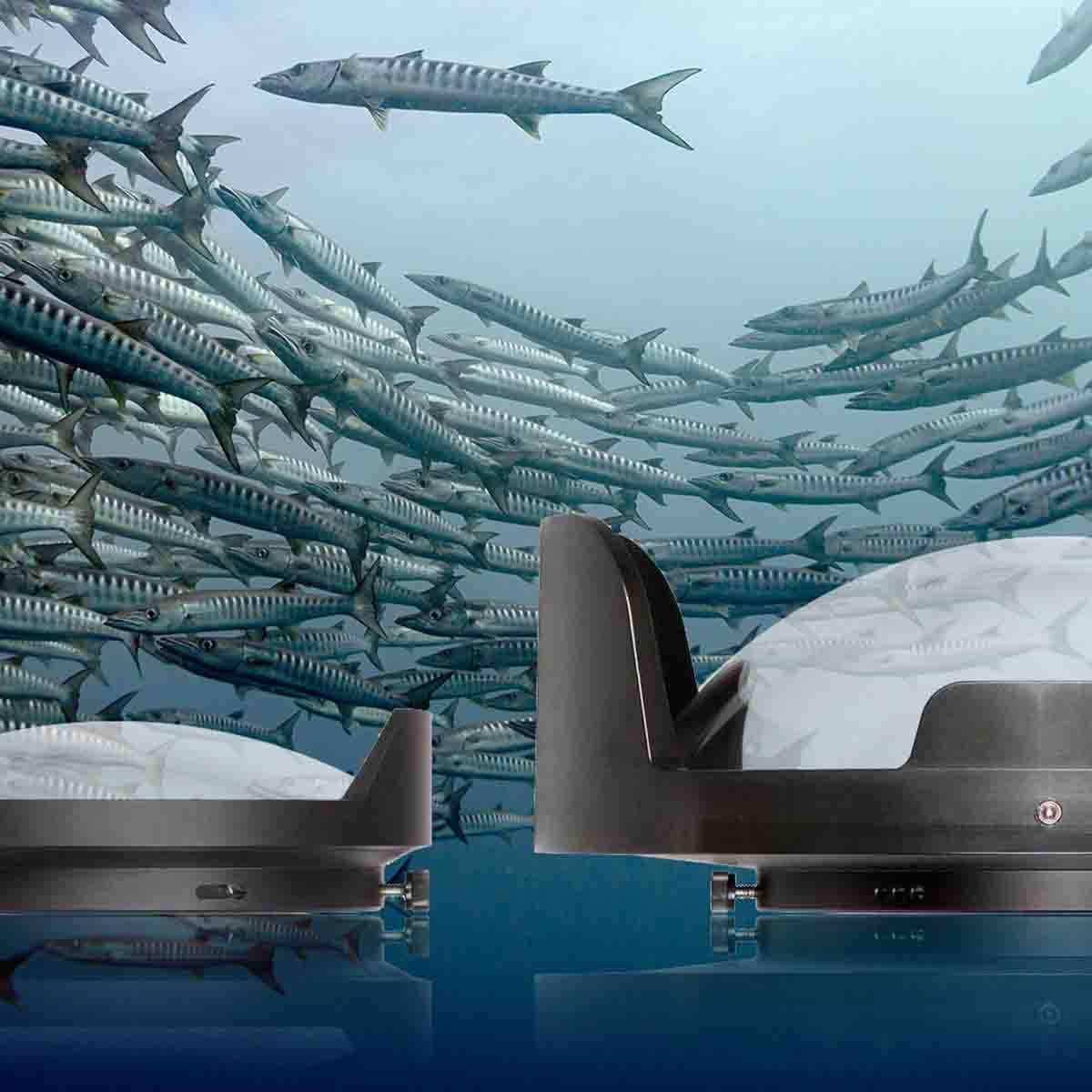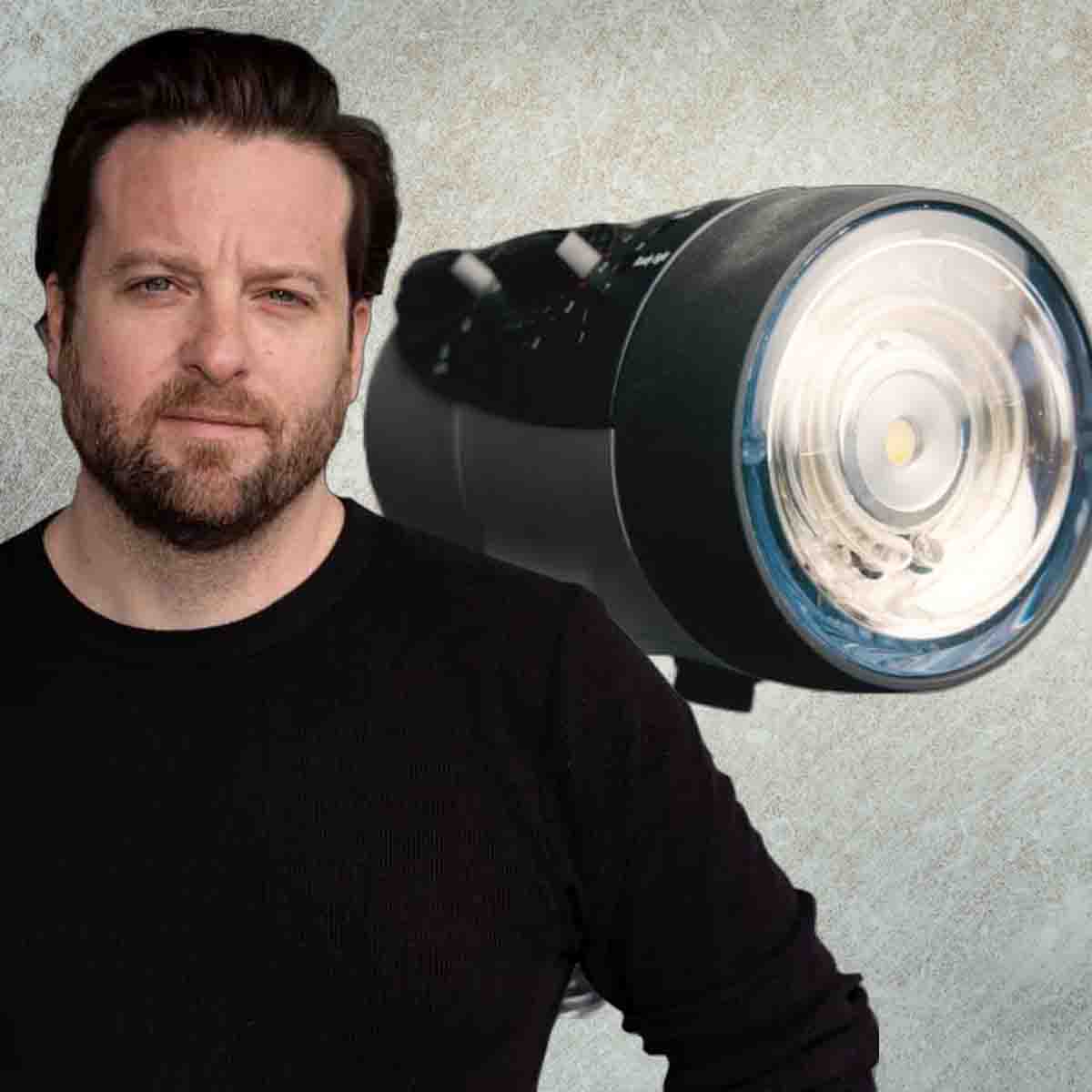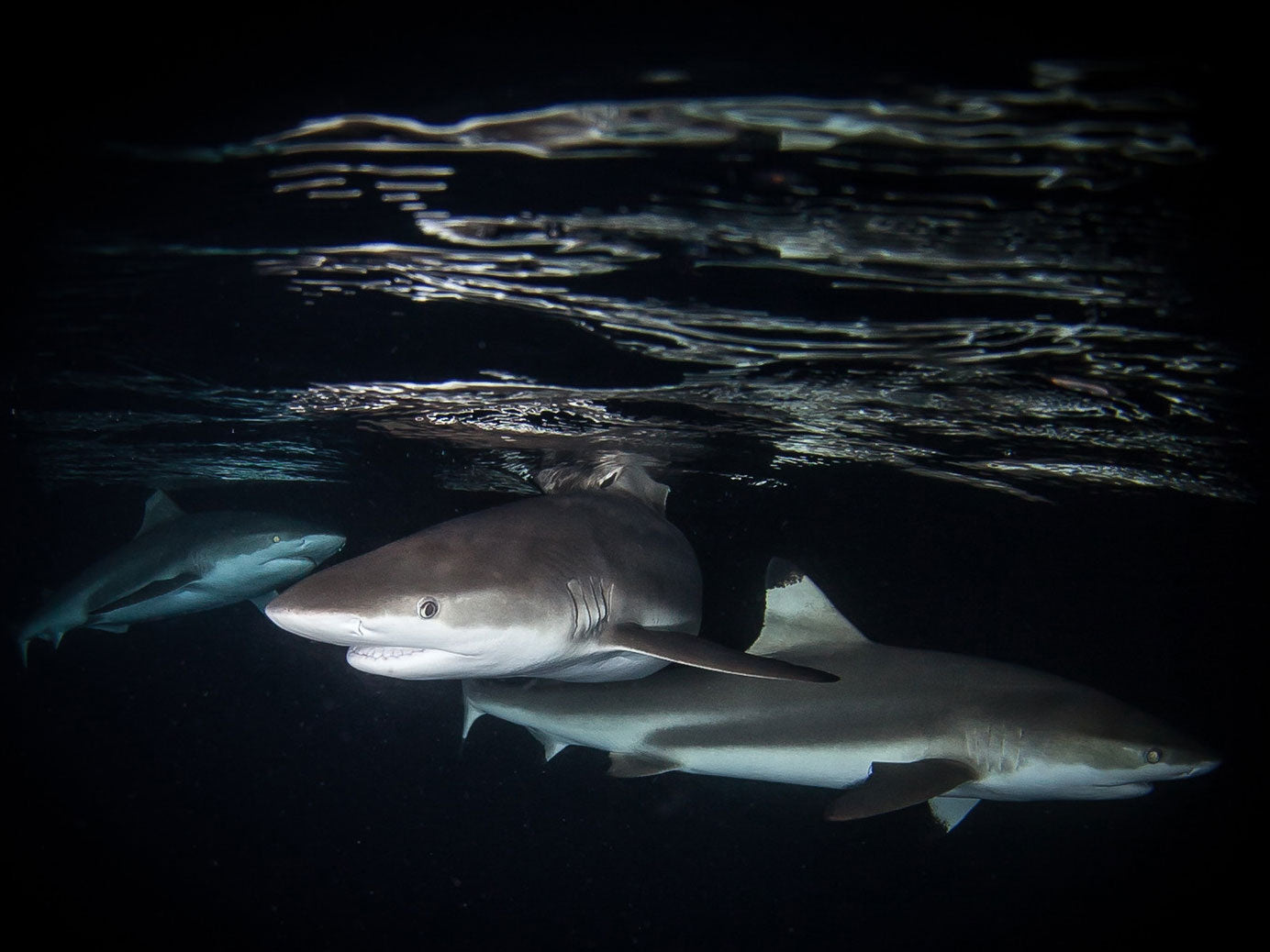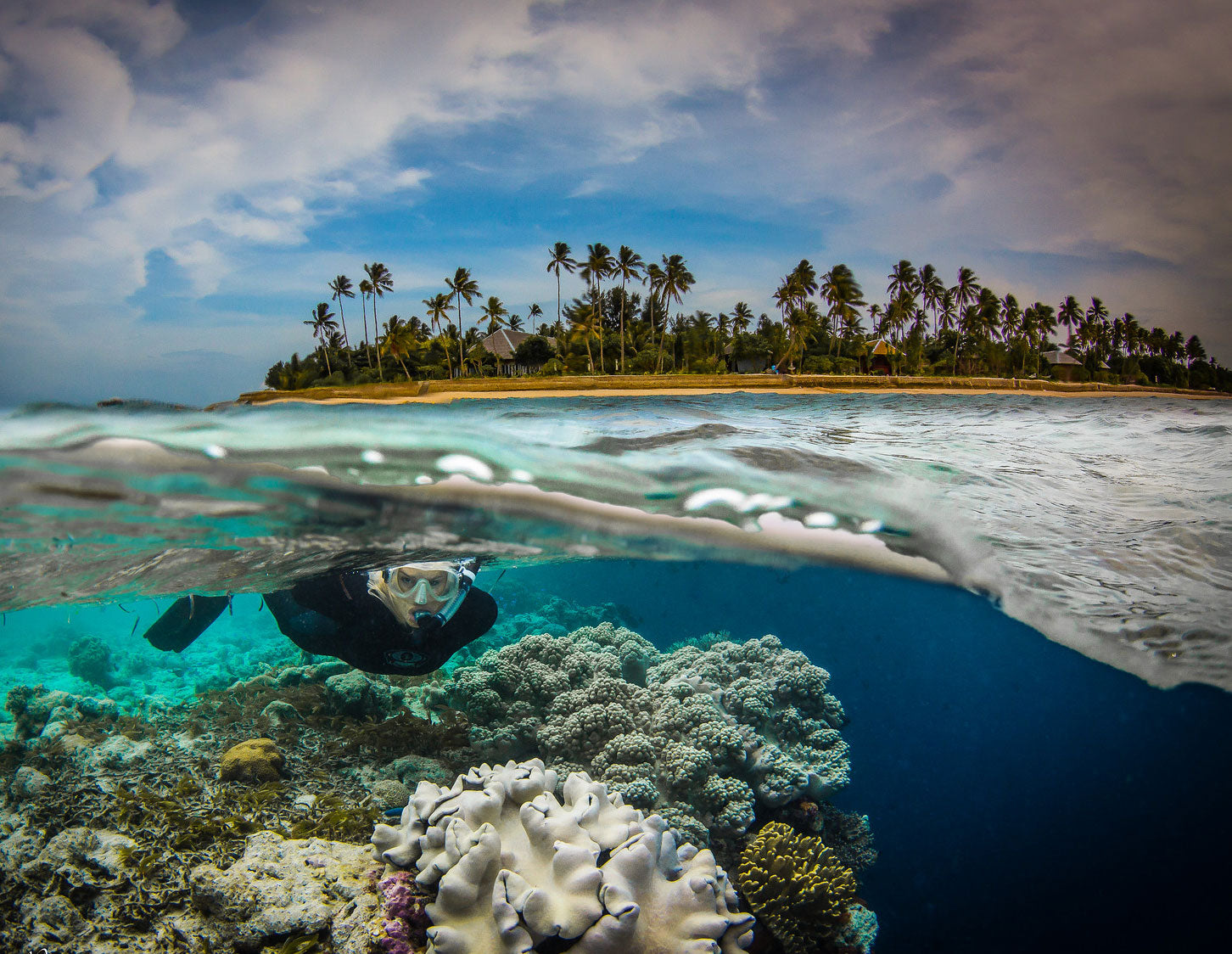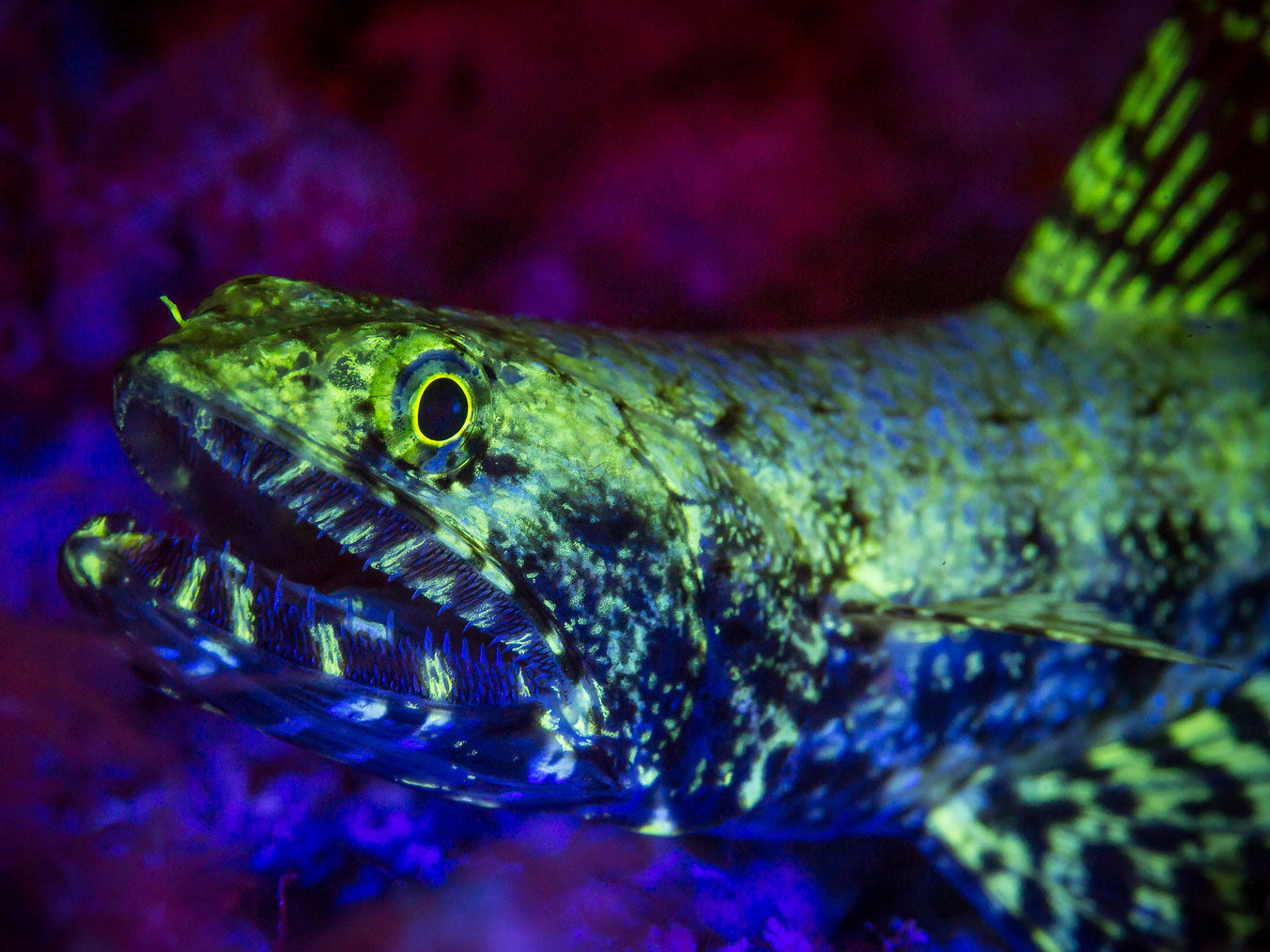Open water at night can be many things: serene or spooky; sleepy or teaming with life. No matter what it always presents new challenges and interesting views for underwater photography. Here are a few techniques that may convince you to skip Happy Hour.
Microscope Mode
The fantastic Microscope Mode found on Olympus Tough TG-4 and TG-5 cameras can capture some eye catching close-ups. Macro images like these clownfish eggs can be shot with the same settings at night as during the day since the entire scene is lit by strobe lighting.

Wide Angle
After the sun sets, there are still some opportunities for a good wide angle capture. With no natural light, the auto focus can struggle so consider pre-focusing.

ISO 400 • f/16 • 1/160 • Canon EOS 100D Rebel SL1 with Tokina 10-17mm Fisheye
Fluorescence
To photograph this underwater, you'll need a strobe (and aiming light) with an "excitation filter" attached and a "barrier filter" on your mask and camera system. What you'll generally see is a glow emitted from a variety of corals and animals, mostly in greens, blues, and reds. You may find two of the same type of corals—one which fluoresces, and one which doesn't. Dive your favorite spots in a different light and see what you've been missing!

Lizardfish are well known for their fluorescence- they seem to always fluoresce, very brightly. The colors in the background are produced by Gamma flashlights with colored gels attached.
Day for Night
Maybe you have time to hit the bar after all... Super small apertures and a little blank space behind your subject can produce a completely black background. This jellyfish shot was taken in mid-day sun around noon on a very bright and shallow diver site.

ISO 100 • f/32 • 1/125 • Canon EOS 200D Rebel SL2 with 35mm Macro lens
Additional Reading
Full Moon Compositing (with free high resolution moon download)
Techniques for Photographing Sharks


